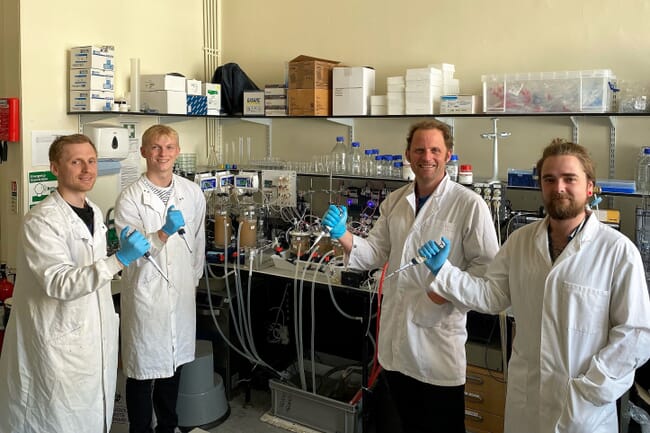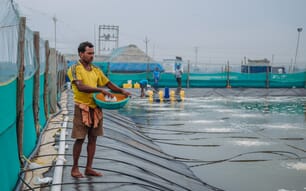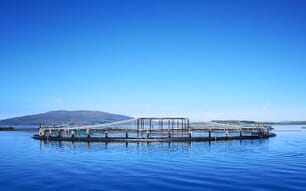
Antimicrobial resistance in aquaculture is a two-way issue that affects both the farm environment and broader ecosystems. Wastewater carrying resistance genes can enter fish farms, and in turn, resistant bacteria can leave the farm and spread into surrounding waters, potentially infecting wild species and eventually reaching humans through food or environmental exposure.
A new study, led by Professor Martin Llewllyn's SalmoSim research group at the University of Glasgow, in collaboration with researchers from the University of Sydney, investigated the transfer and persistence of a multi-drug resistant plasmid in an in vitro model of an Atlantic salmon gut before, during, and after treatment with a common antibiotic.
The team observed that a plasmid, originally isolated from a pathogenic bacterium in catfish, proliferated under treatment with florfenicol - an antibiotic common to aquaculture - and could move between a wide range of bacterial species in the model salmon gut. Notably, these resistance genes persisted in the gut community even after antibiotic treatment was stopped, underscoring the potential for long-term impacts on aquaculture operations and the surrounding environment.
“These findings highlight the need for ongoing stewardship measures in aquaculture. Even when antibiotic use is minimised or halted, these resistance traits can persist and proliferate, posing risks to animal and human health," said Dr. Francisca Samsing, co-author of the study, in a press release.
“These findings provide critical insights into how antibiotic resistance can proliferate within fish guts and persist even after treatment ends. By leveraging advanced techniques like Hi-C, we’ve gained a more complete picture of the microbial interactions that drive plasmid transfer. This is an important step toward developing stronger management strategies for antimicrobial resistance in aquaculture," added Professor Martin Llewellyn.




